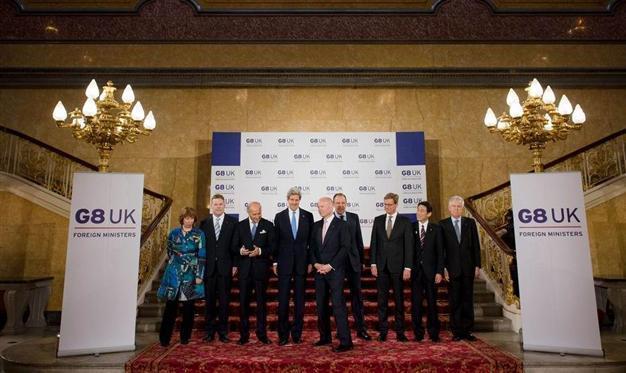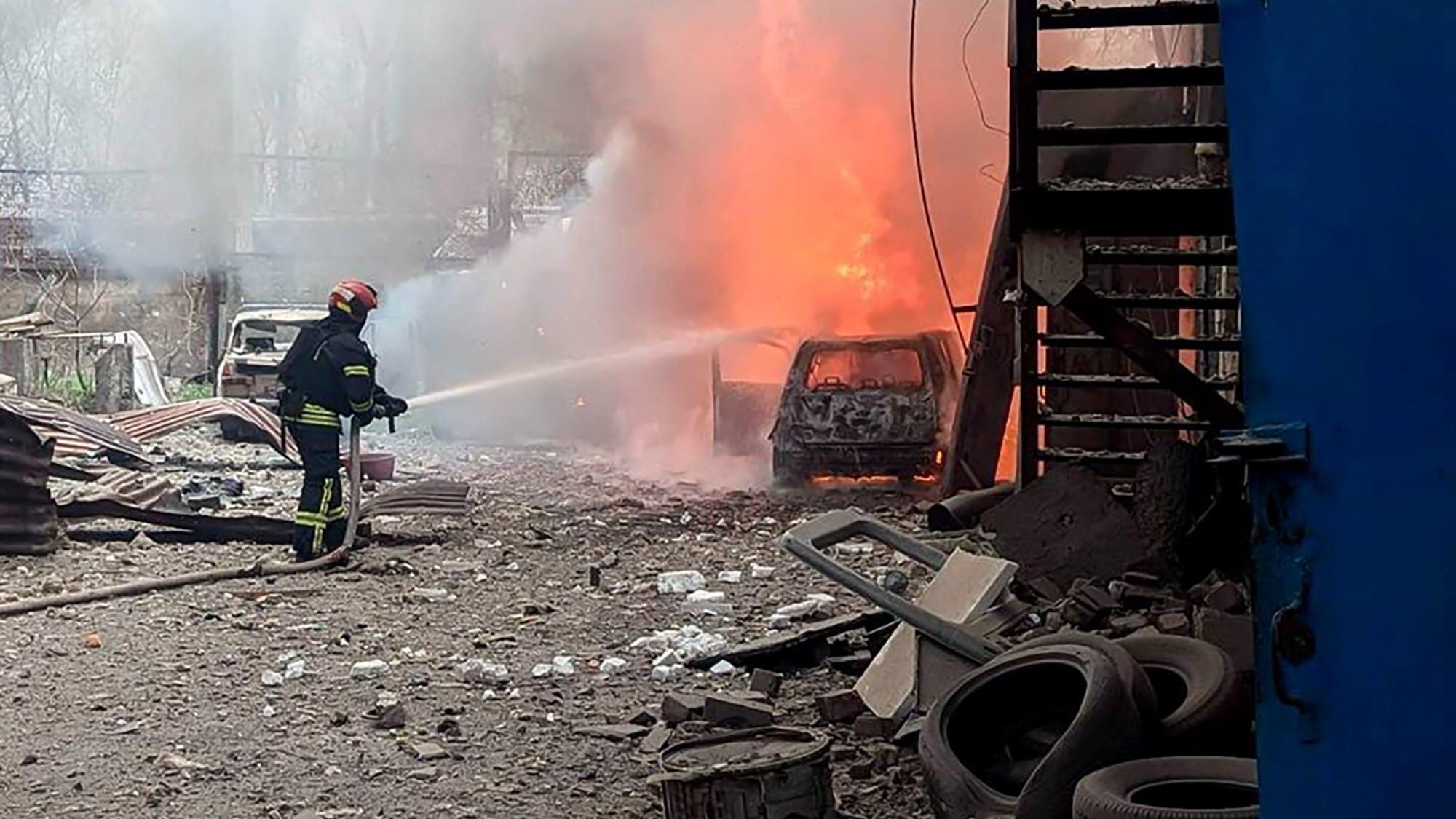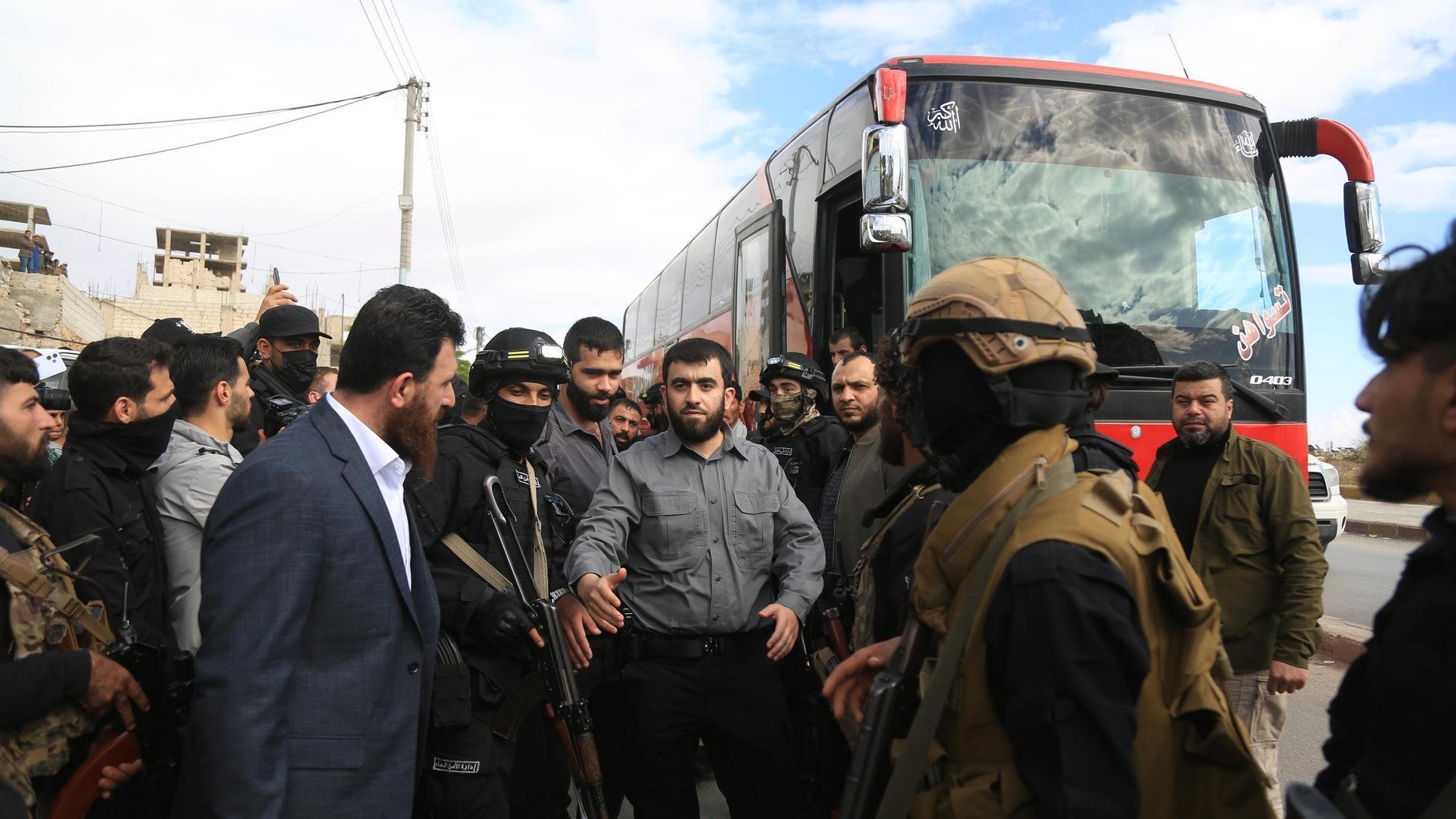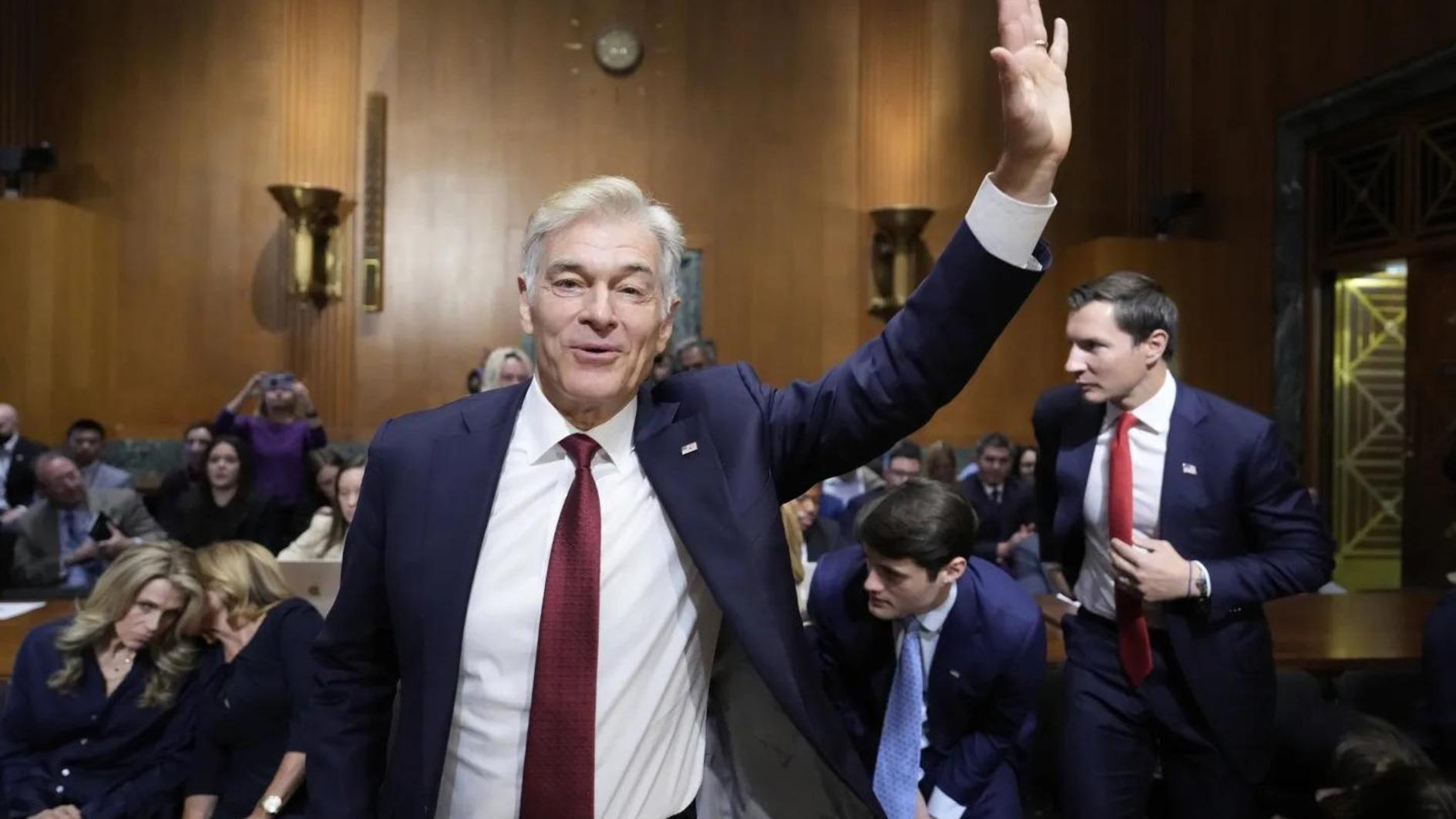G8 ministers condemn North Korea 'in strongest terms'
LONDON - Agence France-Presse

G8 Foreign Ministers pose for a group photograph ahead of their meeting at Lancaster House in London, on April 11, 2013. AFP Photo
G8 foreign ministers strongly condemned North Korea over its nuclear programme and said Thursday they were appalled by the rising death toll in Syria as they wrapped up two days of talks that focused on the two spiralling crises.After a two-day meeting in London, the ministers including US Secretary of State John Kerry warned Pyongyang it faced further sanctions in the event of a missile launch that is expected imminently, amid soaring tensions on the Korean peninsula.
Hollywood star Angelina Jolie meanwhile attended the signing of a new agreement to tackle sexual violence in conflict zones, which British Foreign Secretary William Hague has made a priority of his country's chairmanship of the Group of Eight rich nations this year.
North Korea was the focus of talks on Thursday and the ministers "condemned in the strongest possible terms the continued development of its nuclear weapons and ballistic missile programmes" including uranium enrichment, they said in a statement.
North Korea was in direct violation of four UN Security Council resolutions, it said, adding that Pyongyang's nuclear test on February 12, 2013 -- its third since 2006 -- and two missile launches last year "threaten international peace and security".
The Group of Eight industrialised nations welcomed a Security Council resolution last month to respond with further sanctions to the nuclear test and take further action in the event of a missile launch.
"Ministers supported the commitment in the (UN) resolution to strengthen the current sanctions regime and take further significant measures in the event of a further launch or nuclear test by the DPRK," the final statement said.
Kerry is due to visit South Korea and Japan after he leaves Britain.
But while Russia's agreement on the G8's stance allowed them to take on North Korea, Moscow's continuing support of President Bashar al-Assad meant there was little direct condemnation of the Syrian regime.
They also made no mention of supplying arms to the rebels as the Syrian opposition have demanded, saying only that there should be greater "humanitarian" assistance for those caught up in a conflict that is now in its third year.
"They were appalled that more than 70,000 people have been killed in the conflict and that there are now more than a million Syrian refugees registered by the UNHCR in neighbouring countries, and more than two million internally displaced persons in Syria," the ministers' statement said.
It called on all countries to maximise their contributions to the latest UN appeals for humanitarian aid for Syria, and urged all sides in the conflict, which has now entered its third year, to respect human rights. Any use of chemical weapons "would demand a serious international response", the ministers added.
Kerry and Hague met Syrian opposition leaders on the sidelines of the talks on Wednesday to discuss their demands for weapons to fight President Bashar al-Assad's regime.
But US officials said Kerry made "no promises", with Western nations concerned that any weapons supplied to Syrian rebels could fall into the hands of Al-Qaeda-linked rebels.
The US and EU are currently providing non-lethal aid such as communications equipment, and are beginning to distribute food and medical supplies to the Free Syrian Army, but have stopped short of providing weaponry.
Britain has been pushing to amend an EU embargo blocking the supply of arms to the rebels, but there are concerns that any weapons supplied may fall into the wrong hands.
This fear was exacerbated by the declaration by one of the top rebel fighting forces in Syria, the Al-Nusra Front, of allegiance to Al-Qaeda chief Ayman al-Zawahiri.
The ministers also agreed a new declaration to end the culture of impunity over the use of rape and sexual violence in conflicts, which is supported by Jolie, a UN special envoy.
















